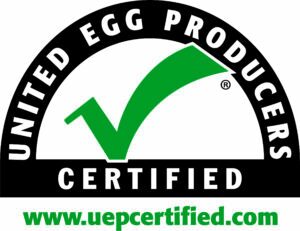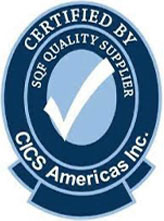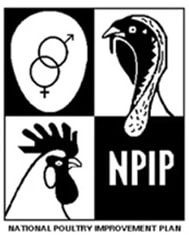

Order wholesale EGGS BY THE TRUCKLOAD IN Missouri
Eggs Unlimited is one of the leading suppliers of eggs in Missouri. Our partnerships with domestic and international egg producers enable us to service all your egg needs. When you order eggs from Eggs Unlimited, you source your eggs from a leading worldwide supplier. Our Missouri supply network helps customers create a more diverse and secure supply-chain. The Eggs Unlimited team has unmatched market reach and insight, so that producers always have an outlet for their products and buyers receive the most competitive prices available.
Eggs Unlimited has dedicated teams to manage all aspects of a transition, ensure timely pickup, deliveries, and payment through direct ACH deposits. Our customers get peace of mind that they have a team of market experts helping to manage their inventory positions and monitor the market in real-time, with a historical vantage from decades of experience.
Faqs
Where does Missouri get their eggs from?
- Local Missouri & Regional Producers
- Large-Scale Commercial Farms
- Integrated Poultry Companies
- Specialty and Organic Eggs
- Wholesalers and Distributors
- Interstate Trade
The diverse sources allows Missouri to maintain a steady supply of eggs to meet the needs of its population. The state’s specific regulations related to egg production, as outlined by the Missouri State Department of Agriculture and Markets, influence how eggs are sourced and produced to meet state and federal standards. To Learn more contact eusales@eggsunlimited.com.
What makes Missouri eggs compliant?
Eggs in Missouri, like in many states, are subject to various regulations and standards to ensure their safety, quality, and compliance with state and federal laws. To be considered “Missouri compliant,” eggs must meet several requirements:
- Size and Weight Standards: Missouri, like other states, has specific standards for the size and weight of eggs. Eggs are categorized based on weight, including Jumbo, Extra Large, Large, Medium, and Small. Each category has defined weight ranges.
- Quality and Freshness: Eggs must meet quality and freshness standards, which are typically assessed based on factors like the condition of the eggshell, the size and positioning of the air cell, and the quality of the egg white and yolk. Eggs that meet these standards are considered suitable for sale to consumers.
- Packaging and Labeling: Eggs must be packaged in clean, sanitary cartons that provide important information to consumers. This includes labeling the size, grade, producer information, sell-by date, and other required information.
- Safety Regulations: Eggs must meet safety regulations to protect consumers from foodborne illnesses. This includes proper handling, storage, and refrigeration practices to prevent the growth of harmful bacteria, such as Salmonella.
- Humane Farming Practices: Missouri has regulations to ensure the humane treatment of egg-laying hens, which includes appropriate living conditions and treatment.
- Food Safety Inspections: Producers and distributors of eggs are often subject to inspections by the Missouri State Department of Agriculture and Markets or other relevant agencies to ensure compliance with state regulations.
- Labeling for Specialty Eggs: If eggs are labeled as specialty products (e.g., organic, free-range, pastured), they must meet the specific requirements for those production methods.
It’s important to note that eggs produced in Missouri are also subject to federal regulations set by the U.S. Food and Drug Administration (FDA). These federal regulations, which cover issues like food safety, are applicable to all eggs sold in the United States. To ensure that eggs are “Missouri compliant,” producers and distributors must adhere to these regulations and standards. Consumers can look for the required labeling and packaging information to help determine the quality and safety of the eggs they purchase. To Learn more contact eusales@eggsunlimited.com.
Who is the largest supplier of eggs in Missouri?
The egg industry is served by multiple large egg producers and distributors within the state. The Missouri egg market is diverse, with various suppliers and brands competing. Eggs Unlimited is one of the largest egg suppliers and has one of the largest networks in the industry. For more information contact eusales@eggsunlimited.com
How much do eggs cost in Missouri?
The cost of eggs in Missouri, like in other places, can vary based on several factors, including the type of eggs (conventional, cage-free, organic, free-range, etc.), the brand, the store, the carton sizing, and the region within Missouri. Common carton sizing in the state:
- A dozen eggs (12 eggs) large white or brown eggs typically in most areas of Missouri.
- 18-count carton of large white or brown eggs..
- 15 dozen eggs (180 eggs) in Missouri, for large white or brown eggs
- 30 dozen eggs (360 eggs) in Missouri, for large white or brown eggs
Prices can change over time, and regional variations can be significant. To get the most accurate and up-to-date pricing for eggs in Missouri, I recommend contacting wholesale suppliers, egg distributors, or checking with local stores or online retailers for bulk purchasing options. Eggs Unlimited can directly put you in touch with these sources for bulk purchasing needs. eusales@eggsunlimited.com
How many eggs are in case?
The number of eggs in a case can vary depending on the type and size of the eggs, as well as the packaging standards of the producer or distributor. The most common case sizes for chicken eggs in the United States are:
- 5-Dozen Case: There are 5 dozen (60 eggs) in a 5-dozen case.
- 10-Dozen Case: While less common, you might also find 10-dozen cases, which contain 120 eggs.
- 15-Dozen Case: Each dozen contains 12 eggs, so there are 15 dozen or 180 eggs. in a 15-dozen case.
- 30-Dozen Case: Each dozen contains 12 eggs, so there are 30 dozen or 360 eggs. in a 30-dozen case.
Contact Eggs Unlimited today! eusales@eggsunlimited.com
How to sell commercial eggs in Missouri?
Selling eggs commercially in Missouri involves a more structured and regulated process, especially if you plan to sell eggs to grocery stores, restaurants, or other commercial entities. Here are 15 steps to sell eggs commercially in Missouri:
Business Planning: Develop a business plan that outlines your goals, production capacity, marketing strategy, and financial projections. Consider the scale of your operation and the potential market demand.
Licensing and Permits: Ensure that you have the necessary licenses and permits to operate a commercial egg business in Missouri. The specific permits required may depend on the size of your operation and other factors. Contact the Missouri State Department of Agriculture and Markets for guidance.
Egg Quality and Grading: Eggs sold commercially must meet specific quality standards and may need to be graded. Ensure that your eggs meet these standards, which may include size, weight, and cleanliness.
Food Safety Regulations: Comply with food safety regulations to ensure the safety of your eggs. Proper storage, handling, and sanitation practices are essential. Familiarize yourself with federal and state food safety regulations.
Egg Packaging and Labeling: Eggs must be packaged and labeled in accordance with state and federal regulations. Label cartons with essential information, including size, weight, grade, producer information, and expiration date.
Distribution Channels: Determine your distribution channels. Commercial egg producers often supply eggs to wholesalers, distributors, grocery stores, restaurants, and foodservice establishments. Establish relationships with potential buyers or distributors.
Production Facilities: Ensure that your production facilities meet sanitary and safety standards. Maintain a clean and healthy environment for your hens, and consider biosecurity measures to prevent disease.
Record Keeping: Maintain detailed records of your egg production and sales. This is crucial for tracking your business performance and compliance with regulations.
Quality Assurance and Inspection: Consider participating in quality assurance programs and inspections to demonstrate your commitment to egg quality and safety.
Egg Handling and Transportation: Use proper handling and transportation practices to maintain egg quality during transit. Ensure that eggs are stored and transported at the correct temperatures.
Market Research and Branding: Conduct market research to understand the demand for eggs in your target market. Consider branding and marketing strategies to differentiate your eggs from competitors.
Insurance: Consider obtaining liability insurance to protect your business from potential legal issues.
Legal and Business Advice: Consult with legal and business professionals to ensure that you meet all legal requirements and protect your business interests.
Stay Informed: Keep up to date with changes in regulations, food safety guidelines, and industry trends.
Consult an Industry Expert: Eggs Unlimited is one of the leading suppliers of eggs in Missouri. Contact us today! https://www.eggsunlimited.com/contact/
Selling eggs commercially in Missouri requires a deep understanding of regulatory compliance, food safety, and the commercial distribution process. It’s advisable to work closely with relevant government agencies and seek expert advice to ensure your commercial egg business operates legally and successfully. Contact Eggs Unlimited today! eusales@eggsunlimited.com
What are some egg laws in Missouri?
- Licensing – To package eggs, you need a Missouri dealer’s egg license or a limited retailer egg license. Retailers can’t buy eggs from anyone other than licensed dealers, except when buying eggs from their own flocks. The Missouri Department of Agriculture has flexible licensing requirements for sellers at roadside stands and farmers markets.
- Labeling – Sellers must list their name, address, and the size and grade of the eggs. Each carton must have the approved license number or the name and address of the person packaging the eggs.
- Repackaging – Eggs or the original egg cartons must not be washed or cleaned in any way for use. Repacked eggs must meet USDA standards for consumer Grade B eggs.
- Temperature – Eggs must be at 45°F or below. The FDA’s Egg Safety Rule requires those transporting eggs to maintain an ambient temperature of 45°F beginning 36 hours after laying of the eggs.
- Examination – A minimum of one hundred (100) eggs shall be examined per sample case.
Missouri egg certifications
The United Egg Producers (UEP) has developed guidelines for conventional hen housing. To qualify as UEP-certified, processors are subject to site visits, where they must verify that their hens meet UEP guidance. Eggs from certified farms may have a UEP label on their packaging. Eggs Unlimited offers UEP-certified products, along with USDA-certified conventional eggs and non-UEP production.




Why Eggs Unlimited?
Eggs Unlimited is one of the leading global suppliers of conventional eggs. We have the experience and market knowledge to help save our customers time and money. We work with some of the largest egg producers, retailers, distributors, foodservice organizations, QSRs, and processors in the US and around the world. They trust us to provide competitive prices and take care of logistics from pickup to delivery.
We act as an extension of our customers’ procurement or sales teams, creating value, providing solutions, and delivering on time and in full. The company is built on family values, and we strive to work harder than anyone in the industry to service the needs of our customers.
LET’S DISCUSS YOUR local Missouri EGG wholesale needs!
Get in touch with the Eggs Unlimited Sales team to discover all your conventional egg options.
Call: 888-554-3977
E-mail: eusales@eggsunlimited.com.
